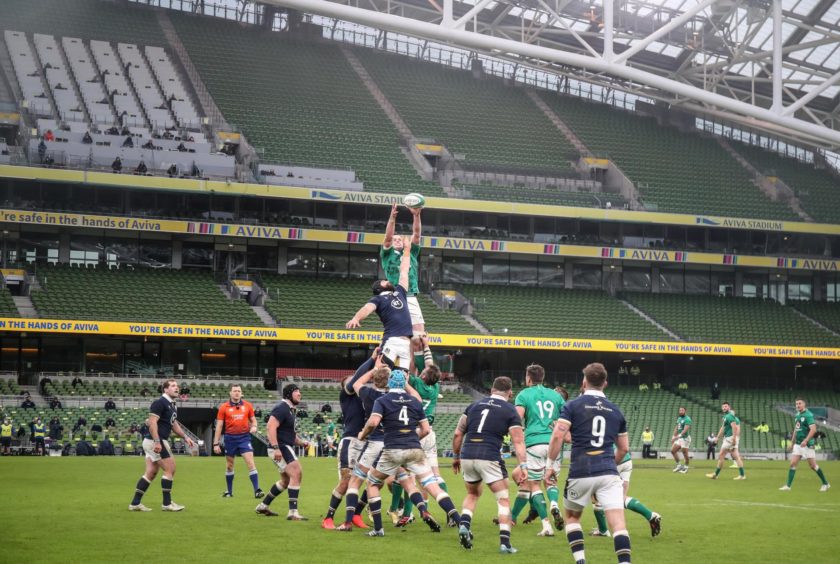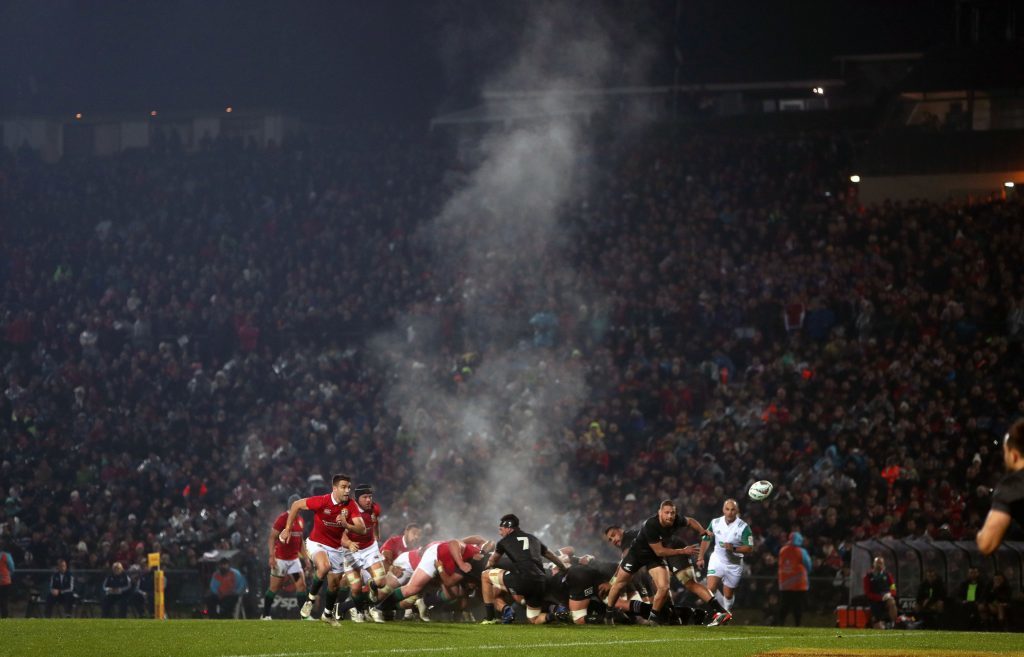When the Christmas décor is finally packed away again – Boxing Day usually for me – thoughts naturally turn to the longer days and spring’s renewal.
No event for the rugby fan encapsulates this optimism like the Six Nations Championship. Once New Year has passed, those of us who have covered 25 or more Six Nations are always somewhat surprised to realise it’s just a month away.
There’s a mad scramble to book flights carefully adjusted to three times their normal price by solicitous airlines, or to realise that in some places – hello Cardiff and Dublin – the cost of your tiny hotel room trebles or quadruples the weekend a game is hosted there.
This year, our optimism is largely crushed already. This week, even before a new lockdown was confirmed, the RFU announced that no fans would be present at Twickenham for the Calcutta Cup match on February 6.
It’s unlikely that Scots will be able to travel to Paris for the game on February 28, and two of the treasured biennial pilgrimages for fans – and this writer – will be lost.
Similarly, the emptying of a large portion of Wales to come to Scotland – sometimes not even to attend the game – will be denied this year. The SRU’s desperation to bend over backwards with the Scottish Government to get people into Murrayfield for the three championship games this year will surely be in vain.
The Autumn Nations Cup experience was awful
The experience of the games in last year’s Autumn Nations Cup – soulless, empty (literally and figuratively) – is one thing. A similar scenario in the Six Nations is almost unthinkable.
There is no event in rugby – not Lions Tour (of which more later) nor Rugby World Cup – that depends on the fans more than the Six Nations. It attracts the largest crowds (per capita, per seats filled by stadium capacity) of any sporting event in the world.
The fans are the pure lifeblood of the championship. It’s certainly not the quality of the rugby that makes it the game’s greatest spectacle. Playing without them will utterly diminish the championship.
So why are we?
The 2020-21 season is already a mess
The 2020-21 rugby season has already been compromised. Club rugby below the elite level – even England’s second-tier Championship – has been completely halted for months.
At elite level, covid-19 infections were fairly successfully controlled at the start. But the inevitable result of differing protocols and the now virulent variants of the virus has led to a spate of postponements and cancellations.
The season is already a moving target. The PRO14, for example, is to be wound up early and the “Rainbow Cup” played with the four South African franchises.
Barely two weeks after this tournament was announced, the chance of it being played is slim to non-existent, because of both the UK and South Africa’s particular virus variants.
The European competitions are a mess. With the schedule so cramped to get it all in, matches cancelled due to covid have no chance of being played, and a committee has been formed to “award” 28-0 results to whoever is deemed to less responsible.
Lions Tour almost certain to be postponed
Then there is the Lions Tour of South Africa scheduled this summer. At the weekend the Lions committee said they were aware of the need for a timely decision on whether the tour will go ahead, and would make one by mid-February.
It seems clear a tour without fans will not be entertained, and therefore a postponement is very likely. Rescheduling is difficult – the Lions are entrenched in their place in rugby’s four-year cycle around World Cups. A tour in 2022 will infringe on all the home nations’ preparations for the 2023 tournament in France.
All this happening, what do rugby’s schedule-makers do? To me it’s obvious.
By May and June, the vaccination programme should be well-advanced in Europe to allow some fans back.
The unions need people in stadiums for the revenue and the health of the championship. Postponing the Six Nations to the end of the 2020-21 season – even at this late stage – makes perfect sense.
The Lions Tour should clearly be postponed this year. It’s regrettable, but I don’t see any alternative to South Africa’s place in the cycle of hosts moving to 2025.
For some people, the Lions are rugby’s premier attraction. But they’re an inconvenient outlier in the sport’s schedule, a precious relic from the simpler times of amateurism.
The path of least resistance
This is not to say the Lions are not worth retaining, far from it. But they are no longer the pre-eminent focus of the sport that many outside of rugby assume. Something has to give in this mess, and this is the path of least resistance.
By 2025, the craving that many have for the representative side should be at fever pitch. I’d imagine a tour like no other before.
Rugby’s world schedule needs some reappraisal anyway, and the Six Nations should at least be slightly later in the spring. This may even convince some to move in future in that direction.
For 2021, however, it’s surely essential.




